My Enemy, My Brother is a film of genre Documentary released in USA on 1 january 2014
My Enemy, My Brother (2014)
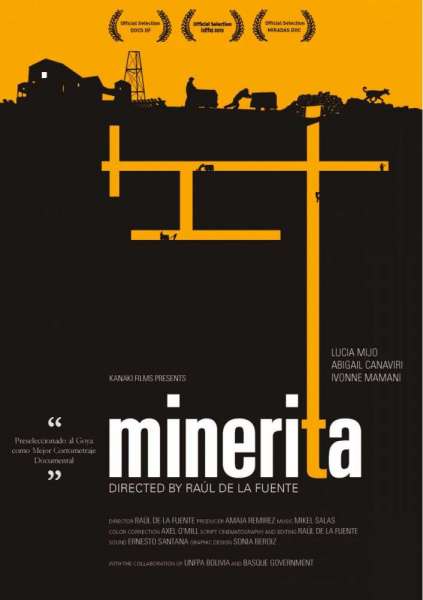
If you like this film, let us know!
- Infos
- Casting
- Technical infos
- Photos
- Videos
- Film quotes
- Characters
- Music
- Awards
Released in USA 1 january 2014
Length 28minutes
Genres Documentary
Themes Environmental films, Documentary films about business, Documentary films about environmental issues
Rating67%










Minerita is a 2013 Spanish short-documentary film about three women working the Potosi mines. The documentary was well received by critics and earned wide spread critical acclaim. Minerita was shortlisted with ten other documentaries from 74 entries submitted to 88th Academy Awards in Documentary Short Subject category. The final five nominations is scheduled to announced on January 14, 2016.
Synopsis
Minerita is the story of three women—Lucía (40), Ivone (16) and Abigail (17), who work as night watch women in the Cerro Rico mining district in Potosi, Bolivia.Comments
Leave comment :
Suggestions of similar film to My Enemy, My Brother
There are 8867 with the same cinematographic genres, 1248 films with the same themes (including 93 films with the same 3 themes than My Enemy, My Brother), to have finally 70 suggestions of similar films.If you liked My Enemy, My Brother, you will probably like those similar films :
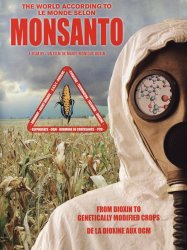 , 1h48
, 1h48Directed by Marie-Monique Robin
Origin France
Genres Documentary
Themes Environmental films, La mondialisation, Films about the labor movement, Documentary films about business, Documentaire sur l'altermondialisme, Documentary films about environmental issues, Documentaire sur le monde du travail
Rating79%





The film reports many controversies surrounding the use and promotion of genetically modified seeds, polychlorinated biphenyls (PCBs), Agent Orange, and bovine growth hormone. Cases in the United States (including Anniston, Alabama), Canada, India, Mexico, Paraguay, the United Kingdom (Scotland) and France, are explored, claiming that the Monsanto corporation's collusion with governments, pressure tactics, suppression and manipulation of scientific data, and extra-legal practices aided the company's attempts at dominating global agriculture. Scientists, representatives of the United States Food and Drug Administration and the United States Environmental Protection Agency, civil society representatives, victims of the company’s activities, lawyers, and politicians are interviewed.
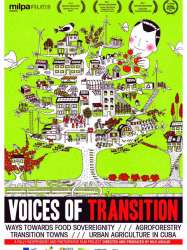
Voices of Transition (2012)
, 1h5Origin France
Genres Documentary
Themes Environmental films, La mondialisation, Films about the labor movement, Documentary films about business, Documentary films about environmental issues, Documentary films about technology, Documentaire sur le monde du travail, Disaster films
Rating75%





Using interviews and overlays of graphics and text, the film presents the current problems facing industrial agriculture. It explores why in the interviewees' view the current industrial model is not up to the task of feeding the world's people. According to the film every calorie of energy contained in a food source currently takes between 10 and 20 calories of crude oil in the production of fertilizers and transportation to produce, leading to a strong dependence of the cost of food on oil prices. As a result of peak oil and increasing oil prices this dependence will lead to ever increasing food prices. According to the film, this dependence already represents a significant weak-spot in the global food supply chain. Additionally, agriculture is already responsible for 40% of greenhouse gas emissions, contributing to climate change. Furthermore, the film argues that the overuse of inorganic fertilizers has been responsible for the loss of soil fertility and threatens the complete loss of usable soil within the next decades through soil erosion and sinking crop yields. These effects, according to the film, can only be partly mitigated by the increased use of those same fertilizers. The loss of workplaces, the concentration of land in the hands of a few (allegedly a farm closes every 23 minutes in France) as well as the dependence on large corporations are enumerated as side effects of the industrialisation of agriculture since the 1920s. Companies, such as Monsanto and Bayer, control everything from seed stock to fertilizers and the necessary chemical mixes for hybrid plants, thereby controlling the entire supply chain. The film argues that this development was supported through subsidies from the World Bank. Interviews with Vandana Shiva, the founder of the Transition Towns movement Rob Hopkins and various agricultural experts serve to argue this viewpoint. The dependence on crude oil is illustrated through the example of the wholesale food market in Rungis.

Blood in the Mobile (2010)
Origin Danemark
Genres Documentary
Themes Environmental films, Documentary films about business, Documentary films about environmental issues
Rating70%






A Place in the Land (1998)
, 32minutesDirected by Charles Guggenheim
Origin USA
Genres Documentary
Themes Environmental films, Documentary films about business, Documentary films about environmental issues
Rating61%






Origin USA
Genres Documentary
Themes Environmental films, Documentary films about business, Documentary films about environmental issues, Documentary films about technology
Rating69%





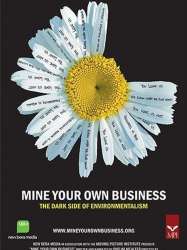
Mine Your Own Business (2006)
Directed by Phelim McAleer, Ann McElhinney
Origin USA
Genres Documentary
Themes Environmental films, Documentary films about business, Documentary films about environmental issues
Actors Phelim McAleer
Rating60%





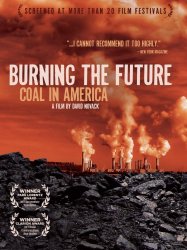 , 1h29
, 1h29Origin USA
Genres Documentary
Themes Environmental films, Documentary films about business, Documentary films about environmental issues, Documentary films about technology
Rating73%






Fuck for Forest (2012)
Genres Drama, Documentary
Themes Environmental films, Films about sexuality, Films about pornography, Documentary films about business, Documentary films about the film industry, Documentary films about environmental issues, Documentary films about nature
Rating52%





The documentary follows Fuck for Forest, or FFF, a non-profit environmental organization founded in 2004 in Norway by Leona Johansson and Tommy Hol Ellingsen, which raises money for rescuing the world's rainforests by producing pornographic material or having sex in public.

After Winter, Spring (2015)
, 1h15Genres Documentary
Themes Environmental films, Documentary films about business, Documentary films about environmental issues
Rating67%






Butte, America (2008)
, 1h7Origin USA
Genres Documentary
Themes Environmental films, Documentary films about business, Documentary films about environmental issues, Documentary films about historical events
Rating66%





 Connection
Connection